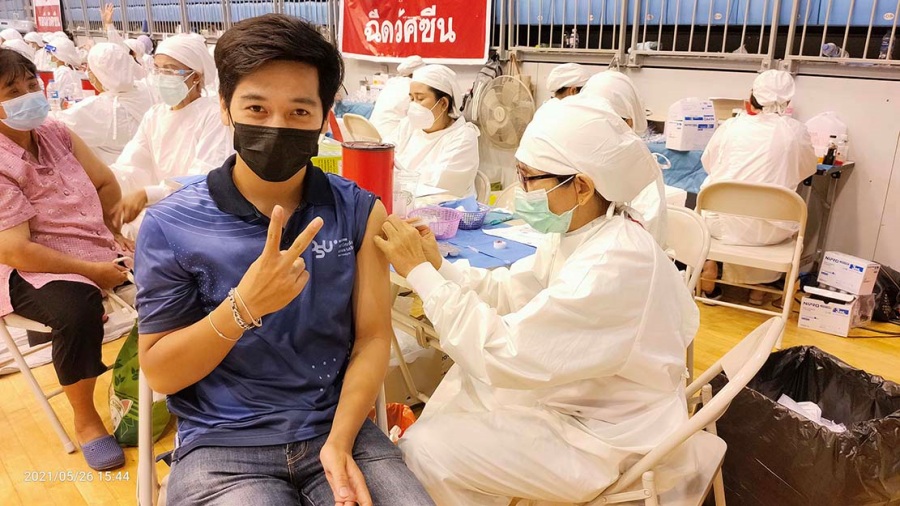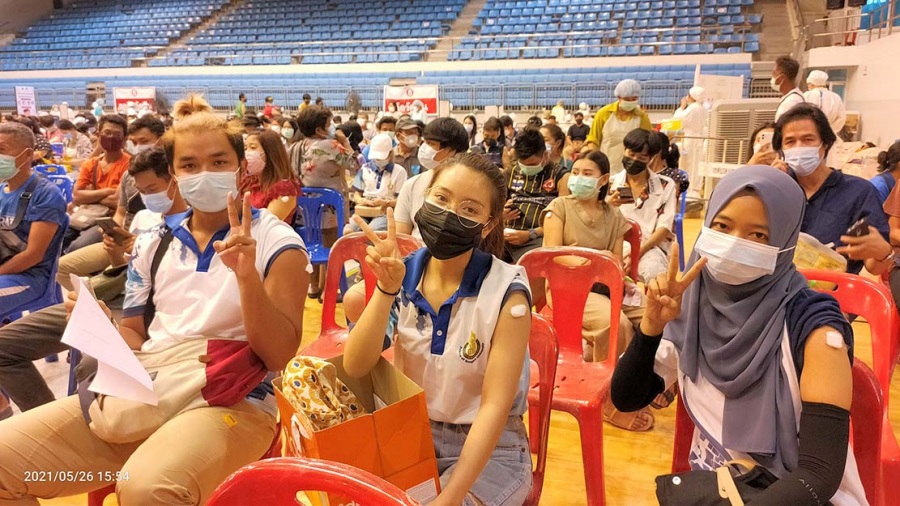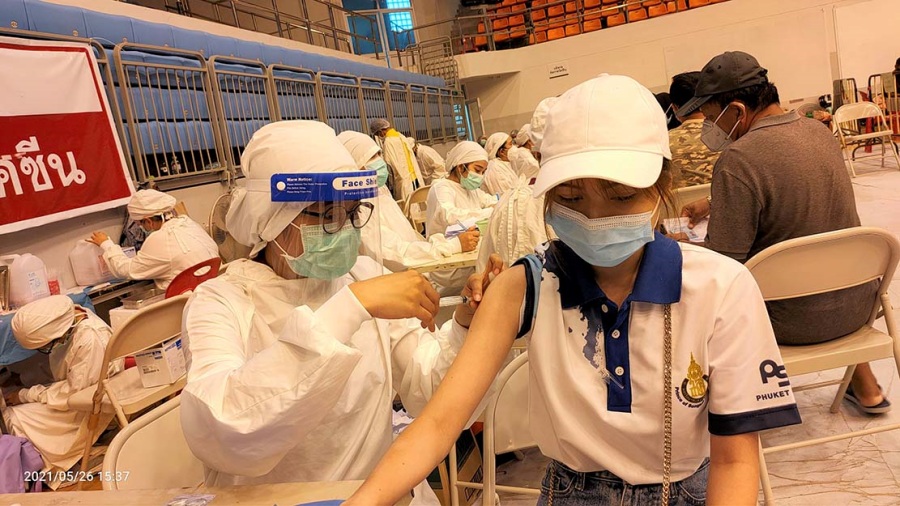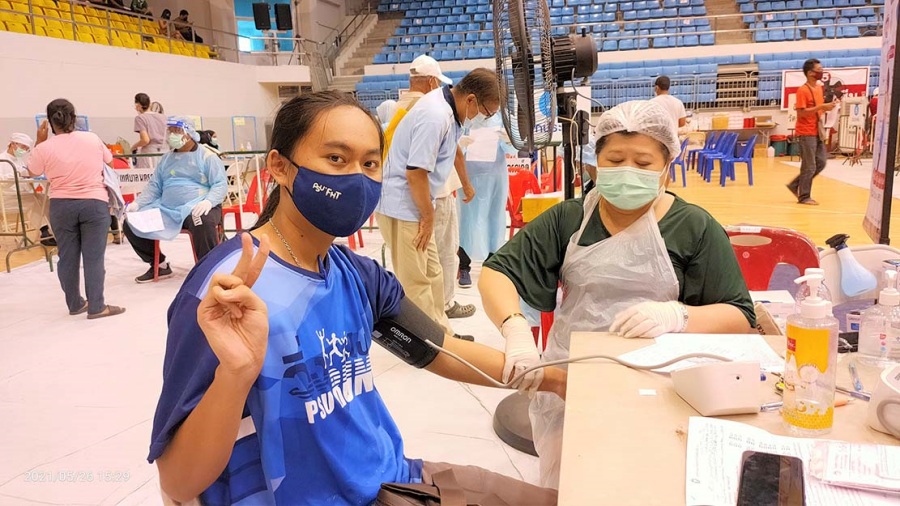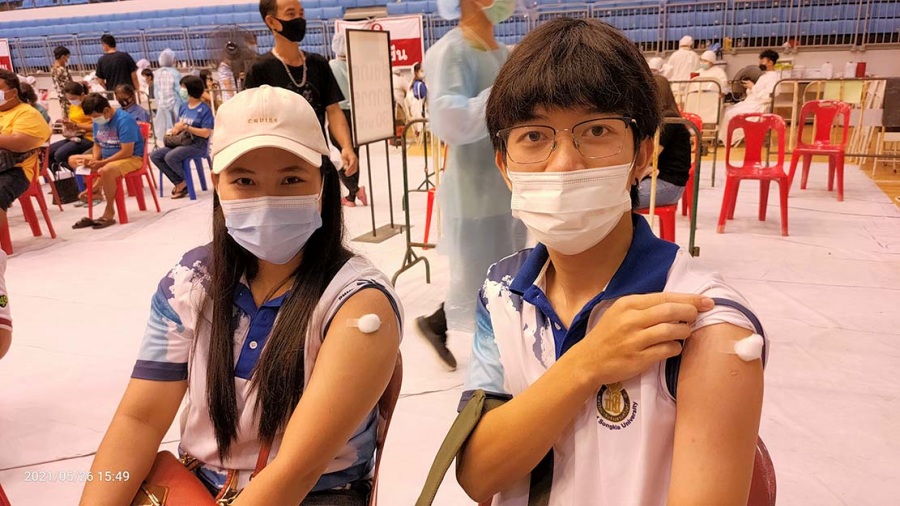
Prince of Songkla University’s Phuket Campus is vaccinating its Thai and foreign staff and students against COVID-19. The vaccination campaign is expected to reach completion by the end of June 2021, corresponding to the Phuket Sandbox Model starting on 1 July 2021.
Phuket Campus Vice President Assoc. Prof. Dr. Pun Thongchumnum revealed that as of 30 May 2021, 27% of PSU staff have received two doses of the COVID-19 vaccine, 47% have had their first dose, 21% are on the waiting list for the first dose, and 5% have refused to receive the vaccine. Furthermore, with an 80% projected student vaccination target rate, currently 9.08% have received their second dose, 25% have received the first dose, 2% are waiting for the first dose, and 8.18% are waiting to confirm their first vaccination date, while 43.76% of Thai students have not yet registered for vaccination.
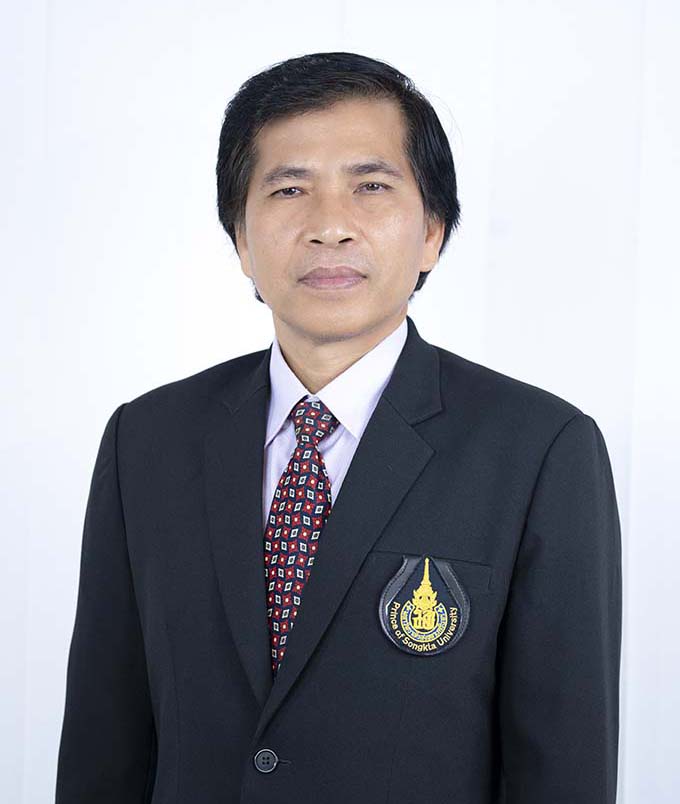
Dr. Pun further explained that, since PSU Phuket Campus is considered an international campus, foreign staff have also been vaccinated using their work permit to fulfill the official requirements.
Foreign students on the other hand, although lacking a work permit, are still considered staff of PSU Phuket Campus. Disussions with the relevant authorities to find a solution are underway. At present, unvaccinated international students make up 11.97% of the student body on campus.
In its campaign to monitor the vaccination of all groups to achieve the target, Phuket Campus has appointed the committee "PSU Phuket 100% Vaccinated". The campus committee has been making a coordinated effort throughout various faculties to encourage all new students to receive the vaccine by the end of June 2021.
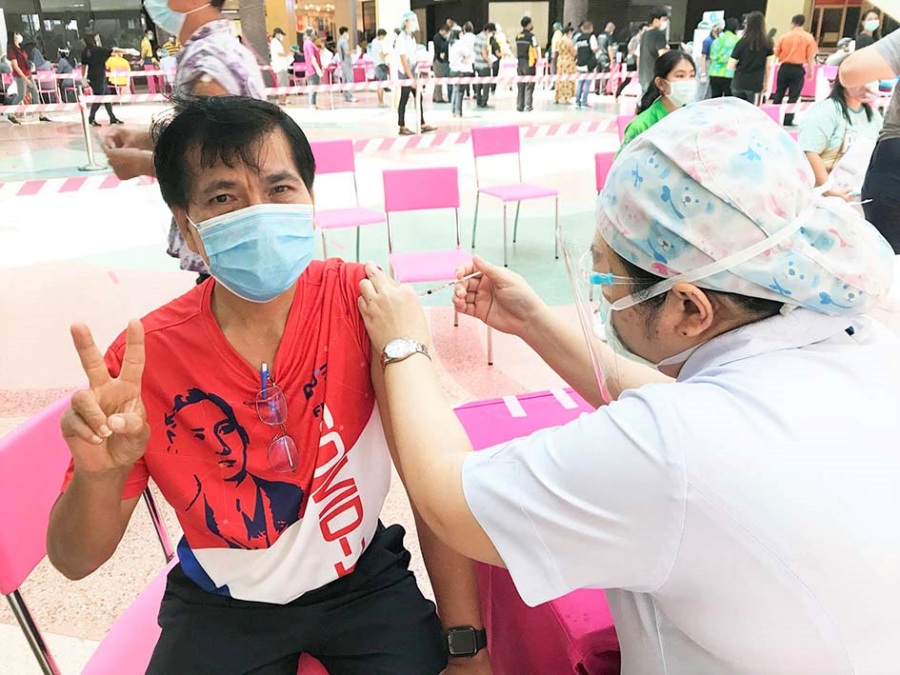
“I would like to invite all Thais to get vaccinated to prevent the spread of COVID-19. Please do not worry about side effects as reported in the news. In fact, all vaccines have side effects. The COVID-19 vaccine also has side effects, but not any more severe than those of the flu vaccine that's been injected throughout the past decades. In addition, the vaccine can increase your chances of surviving the infection, reduce the spread of disease via carriers, and reduce risks to your loved ones. It is also an act of responsibility towards the country and mankind,”
Assoc. Prof. Dr. Pun concluded.
